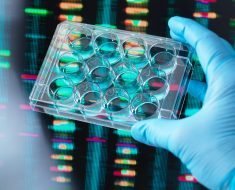Researchers at University of California San Diego School of Medicine, with colleagues elsewhere, describe a different way to build a COVID-19 vaccine, one that would, in theory, remain effective against new and emerging variants and could be taken as a pill, by inhalation or other delivery methods.
Their findings publish in the July 21, 2022 online issue of PLOS Pathogens.
The research involved building plasmids genetically altered to contain bits of genetic material specifically intended to target a vulnerability in the SARS-CoV-2 virus’s spike protein, a portion of the virus critical to binding and infecting cells. Plasmids are small, circular DNA molecules from bacteria that are physically separate from chromosomal DNA and can replicate independently. They can be used by scientists to transfer genetic material from one cell to another, after which the introduced genetic material can replicate in the receiving cell.
The approach, said senior author Maurizio Zanetti, MD, professor of medicine at UC San Diego School of Medicine and head of the Laboratory of Immunology at UC San Diego Moores Cancer Center, points to the possibility of a more durable, and more broadly effective, COVID-19 vaccine.
“The details are complicated, but the fundamentals are simple,” said Zanetti. “They are based on well-known and proven principles and methods.”
COVID-19 mRNA vaccines, such as those by Pfizer and Moderna, are the result of decades of previous research and development. The pandemic added new urgency, focus and resources. These vaccines promised a faster way to people, though not without significant challenges, such as the need of an ultralow temperature cold chain.
Source: Read Full Article





